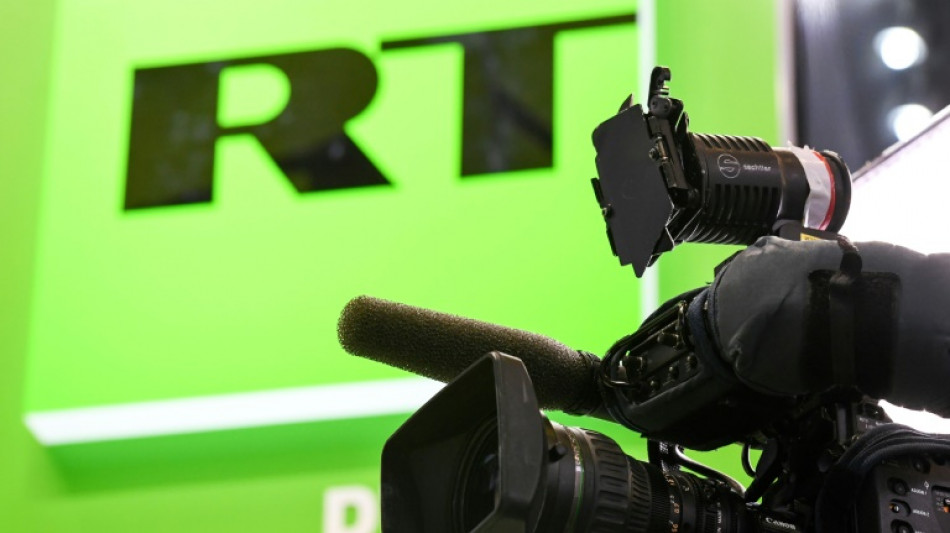
RBGPF
0.0000

The German broadcasting regulator said Wednesday it had banned the transmission of the German-language channel of Russian state broadcaster RT, with Moscow vowing to take "retaliatory measures".
The transmission of the channel "RT DE" was "prohibited because it does not have the necessary broadcasting licence", the German regulator's authorisation and oversight commission said in a statement.
"This step leaves us no choice other than to start implementing retaliatory measures against German media accredited in Russia," the Russian foreign ministry said in a statement.
It added that similar measures would be taken against "internet-intermediaries" that have deleted the channel from their platforms, in an apparent reference to IT giant YouTube.
"The verdict of the German media regulator is an unambiguous sign that Russian concerns were demonstrably ignored," the statement said.
RT's editor-in-chief Margarita Simonyan condemned the move as "complete nonsense" on Twitter, adding that the channel "will not stop broadcasting".
RT DE was blocked from Europe's satellite network on December 22 at the request of German authorities, less than a week after going on air, but was still available over the internet and via a mobile app.
In its response to the suspension, RT DE said it was broadcast from Moscow and had a Serbian broadcasting licence, which it said gives it the right to broadcast in Germany under European law.
"We cannot understand why a supposedly informed and independent regulator should act on what appears to be a purely political basis, based on a false version of reality that serves its own purpose," it said.
But the German regulator said the channel was based in Berlin and did not have a "legitimate permit under European law".
RT DE said it would seek to appeal in court against the regulator's decision.
Vladimir Soloviev, president of the Russian journalists' union, told the Russian TASS news agency Germany was seeking to "ban an alternative point of view" and violating "principles of freedom of expression".
- Rising tensions -
The decision comes at a moment of rising tensons between Moscow and the West over the massing of Russian troops on the border with Ukraine.
Launched in 2005 as "Russia Today", state-funded RT has expanded with broadcasters and websites in languages including English, French, Spanish and Arabic.
It has been accused by Western countries of distributing disinformation and Kremlin-friendly propaganda.
It has generated controversy in many countries, including the United States, where it was required to register as a "foreign agent", and in Britain, where authorities have threatened to revoke its broadcasting licence.
The channel has been banned in several countries, including the ex-Soviet republics of Lithuania and Latvia.
In September, Google-owned YouTube issued a warning to RT DE for violating its coronavirus disinformation guidelines and then shuttered two channels for breaching user terms.
A third channel was blocked in December for trying to circumvent the earlier terminations.
E.Leuenberger--NZN